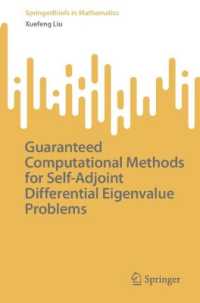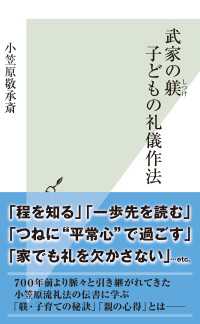Full Description
It's Not Rocket Science! Designing Meaningful Learning Experiences in the Elementary Classroom is a hands-on manual that streamlines the curriculum design process by utilizing a four-step approach: deconstructing, reconstructing, lesson planning, and assessing. Grounded in a theoretical framework that all students, regardless of background, are entitled to high quality learning, this step-by-step method allows teachers to create structured, cohesive units of study that impact students' lives, while at the same time providing the opportunity for teachers to thoroughly analyse a content area before creating learning experiences. Included are concrete examples, strategies and templates that help educators create active and engaging lessons for students.
"In It's Not Rocket Science! Designing Meaningful Learning Experiences in the Elementary Classroom Robert Blake and Lisa Trattner pare down the planning process to five central questions that need to be internalized by teachers, educational leaders, all who engage in the educational process, even including students. Far too much is wasted by the drudgery of requiring educators to pursue endless hours of writing lesson plans, only to find that they don't meet the ever-changing needs of educational situations. Like living a good philosophy of life, embodying these questions nourishes seeds of imagination and improvisation that enrich teaching and learning moment by moment by enhancing the meaning that students experience. Although it may not be as technically sophisticated as rocket science, it may be more important. It collaboratively reconstructs the next (and hopefully better) generations of human beings!"
—William H. Schubert. Professor Emeritus of Curriculum and Instruction, and Former University Scholar, University of Illinois Chicago; Fellow of The International Academy of Education; recipient of the Lifetime Achievement Award in Curriculum Studies of the American Educational Research Association, former President of the John Dewey Society, the Society of Professors of Education, and the Society for the Study of Curriculum History; author of Love, Justice, and Education, co-editor of The Oxford Encyclopedia of Curriculum Studies (with Ming Fang He), and more than 25 books and 250 articles and chapters
Contents
List of Figures - List of Tables - Acknowledgment - Foreword - Introduction - Step 1: The Deconstruction - Step 2: The Reconstruction - Step 3: Planning - Assessing Student Learning - Index - About the Authors.








